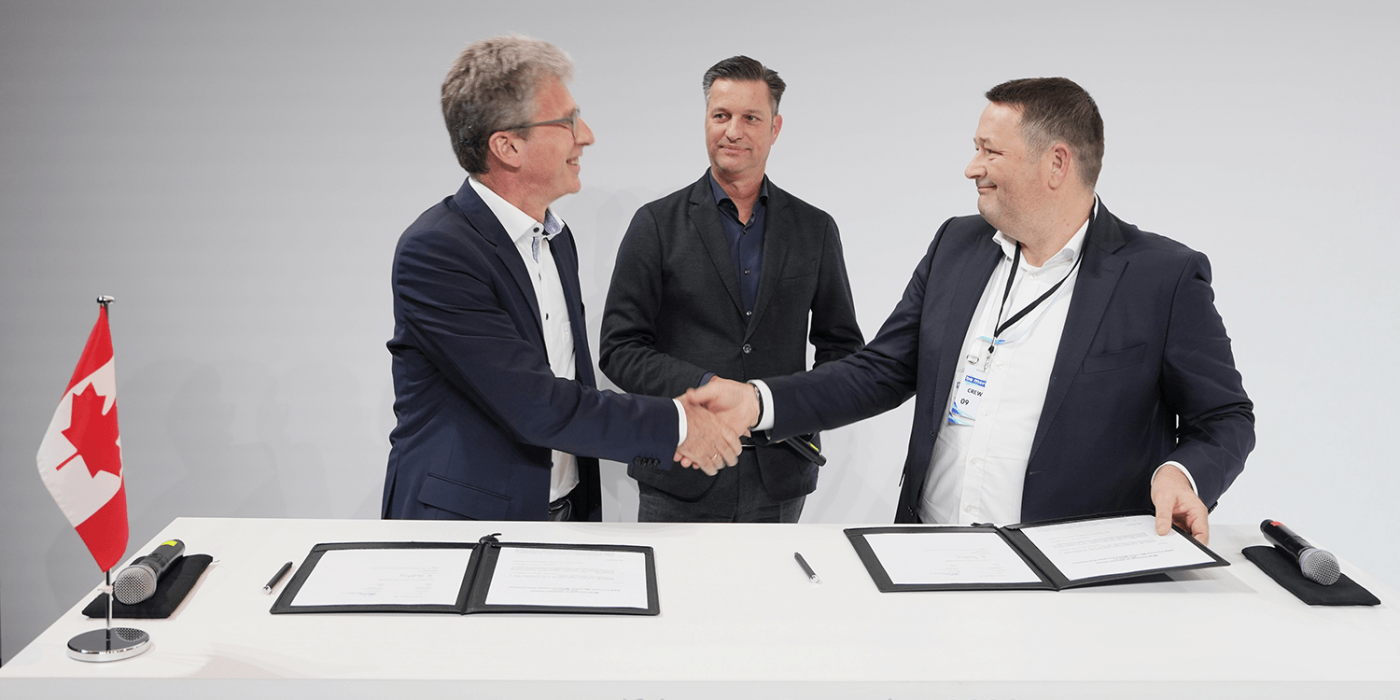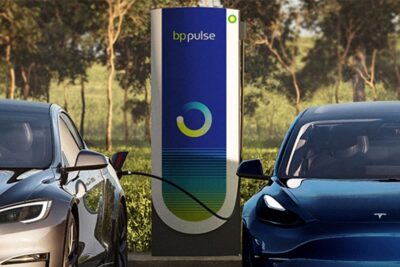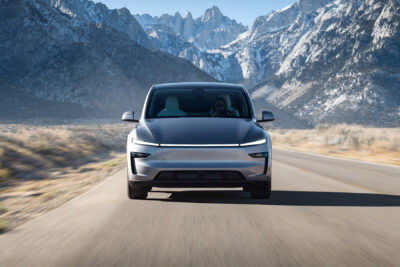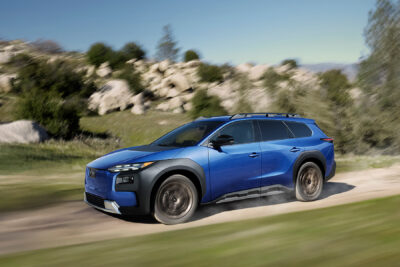Volkswagen commits to searching a Gigafactory site in Canada
The Volkswagen Group and its battery subsidiary PowerCo have started the search for a location for the first battery cell factory in North America, namely in Canada. PowerCo and Umicore simultaneously agreed on a strategic supply agreement for cathode material in North America.
The concrete search builds on an earlier MoU between Volkswagen Group and Canada signed in August this year. Now Volkswagen CEO Oliver Blume and François-Philippe Champagne, the Canadian Minister of Innovation, Science and Industry, signed an addendum in Wolfsburg today to identify suitable sites to build a cell factory in Canada.
The document reinforces the plans made earlier with Volkswagen, adding cooperation based on ESG criteria between PowerCo and the Canadian mining sector. Yet the “key element” in the Addendum is the search for potential sites for a gigafactory. Board Member for Technology of Volkswagen AG and Chairman of the Supervisory Board of PowerCo SE Thomas Schmall said Volkswagen would “not only consider site characteristics and infrastructure but also, and especially, the availability of adequate quantities of energy from renewable sources and competitive financial conditions”.
He added other sites in North America into the competition: “PowerCo will conduct intensive negotiations with all parties concerned in the near future with a view to identifying the most competitive site” – meaning, the USA.
PowerCo and Umicore take cooperation across the Atlantic
And there is the supply side to the Gigafactory, which PowerCo simultaneously addressed today together with Umicore. The companies signed an MoU concerning a long-term strategic partnership to secure cathode materials for future cell production in North America. The joint statement speaks of “intensifying their existing cooperation on the development of regional supply chains for sustainable battery materials”. PowerCo and Umicore already announced in September that they would seek to manufacture starting and cathode materials in Europe as a joint venture. The partners say they are extending their cooperation to Canada through the additional supply agreement.
The objective is “to secure capacities at competitive prices as well as firm delivery agreements” for the future cell production of PowerCo SE. Volkswagen figures a volume of up to 40 gigawatt-hours (GWh) per year in 2030, corresponding to about 550,000 all-electric vehicles. Deliveries are planned to start in 2027.
Umicore plans to start the construction of a plant for cathode materials and precursors in Canada from 2023 onwards. This plant will be the first of its type in North America and shall supply multiple partners with a capacity of cells for one million EVs by the end of the decade. Looking at today’s agreement and forecasts, however, PowerCo would get at least half of Umicore’s North American production.
Such a “long-term cooperation with PowerCo would support our plans to build Canada’s first-of-its-kind precursor and cathode materials facility, which would, in turn, provide PowerCo with secure access to these critical materials and enable the ramp-up of its battery cell production in North America,” commented Ralph Kiessling, Executive Vice President of Umicore.
Jörg Teichmann, Chief Purchasing Officer of PowerCo SE, added that the partnership would provide the company with access to locally produced cathode materials for cell production. “We will benefit from tried and tested cooperation and the product quality of Umicore. ”
US demands localised supply chains
Volkswagen founded PowerCo in July 2022 with headquarters in Salzgitter, next to the company’s German battery factory, for which the foundation stone was laid in July. The company is charged with ten Group’s global battery activities, including developing the battery value stream in North America.
Volkswagen Group CEO Oliver Blume considers battery technology “a key for our strategy”. He also called Canada “one logical option for the construction of a gigafactory in the region of North America,” also because the government had “already proven to be a strong and reliable partner”. Blume added the EV market in North America was “at a turning point” and that the company was “committed to investing across the entire region”.
Indeed, when signing the first MoU in the summer, reports suggested this was also due to current policies in which the US demands value creation in North America. According to sources, the decision to secure necessary battery materials locally should be seen against the backdrop of the Inflation Reduction Act, which includes electric car subsidies. In future, EVs will only qualify for the full tax credit in the United States if they have been assembled and sourced with (critical raw) materials in North America.
In VW’s case, the supply from Canada should also simplify the supply chains for the US plants – series production of the ID.4, which still relies on battery cells from SK On’s plant in Georgia, started in Chattanooga, Tennessee, at the end of July.
Earlier German reports also saw Volkswagen aiming to become the first Western carmaker to acquire direct stakes in mines. “We are not opening any mines of our own, but we want to take stakes in Canadian mines and mine operators,” VW board member for technology Thomas Schmall told Handelsblatt. According to Schmall, the aim is to secure volumes and prices through long-term supply agreements, for example, as part of a joint venture with PowerCo — so cue in Umicore today.





0 Comments